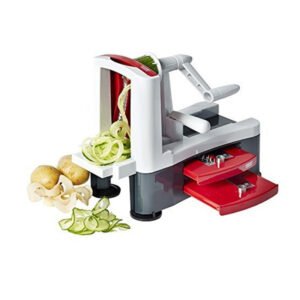Introduction: In the pursuit of culinary excellence, precision is paramount. From delicate pastries to perfectly seared meats, achieving consistent results hinges on accurate measurements. Enter the kitchen electronic scale, a versatile tool that has revolutionized the way ingredients are weighed and recipes executed. In this article, we delve into the myriad benefits and applications of kitchen electronic scales, exploring how they empower chefs and home cooks to elevate their culinary creations to new heights.
Evolution and Innovation: The concept of weighing ingredients dates back centuries, but it was the advent of electronic scales that ushered in a new era of precision and efficiency in the kitchen. Early iterations of kitchen scales relied on mechanical mechanisms and analog displays. However, with advancements in technology, modern electronic scales have emerged as sleek, user-friendly devices equipped with digital displays, touch-sensitive controls, and a range of sophisticated features.
Functionality and Design: Kitchen electronic scales are designed to offer unparalleled accuracy and ease of use. Typically constructed from durable materials such as stainless steel or tempered glass, they feature a flat weighing platform where ingredients are placed for measurement. Beneath the platform, precision sensors detect the weight of the items, which is then displayed on a digital screen in various units of measurement, such as grams, ounces, pounds, or kilograms. Many models also include tare functions, allowing users to zero out the weight of containers or additional ingredients for precise measurements.
Benefits in Culinary Endeavors: The adoption of kitchen electronic scales yields numerous benefits, revolutionizing the way ingredients are handled and recipes executed:
- Accuracy: Electronic scales offer unparalleled precision, ensuring that ingredients are measured with pinpoint accuracy, resulting in consistent flavor profiles and texture in culinary creations.
- Versatility: From delicate spices and herbs to bulkier ingredients like flour and sugar, electronic scales can handle a wide range of items with ease, accommodating diverse culinary applications.
- Time Efficiency: By eliminating the need for manual measuring cups and spoons, electronic scales streamline the preparation process, saving valuable time and reducing the risk of errors.
- Portion Control: For individuals mindful of portion sizes and nutritional intake, electronic scales provide an effective means of monitoring food quantities, promoting healthier eating habits.
- Recipe Scaling: Electronic scales facilitate effortless recipe scaling, allowing chefs to adjust ingredient quantities proportionally to accommodate varying batch sizes or serving portions.
- Baking Precision: In the realm of baking, where precision is paramount, electronic scales excel at accurately measuring ingredients like flour, sugar, and leavening agents, ensuring consistent results in cakes, bread, and pastries.
Practical Applications: The utility of kitchen electronic scales extends across a spectrum of culinary endeavors:
- Baking: Measure precise amounts of flour, sugar, butter, and other ingredients to achieve the perfect texture and rise in baked goods.
- Cooking: Ensure accurate portioning of meats, seafood, and vegetables for precise cooking times and balanced flavors in savory dishes.
- Mixology: Craft cocktails with precision by measuring precise amounts of spirits, syrups, and juices for well-balanced and consistent libations.
- Meal Prep: Streamline meal preparation by portioning ingredients ahead of time, facilitating efficient cooking and portion control for healthy, balanced meals.




